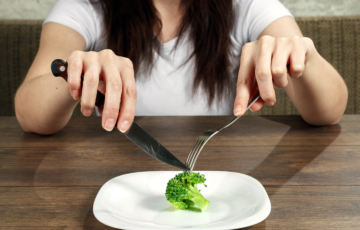
For many adults, our daily routine begins with a cup of coffee or may include a caffeinated pick-me-up throughout the day. The Food and Drug Administration recommends healthy adults limit their caffeine intake to 400 mg/day. Too much caffeine can lead to unpleasant and dangerous symptoms. While the relationship between caffeine and adults is well documented, the effects of caffeine on children are not understood quite so clearly. For that reason, experts recommend that kids and teens limit or avoid caffeine, especially for younger children.
Where kids are getting caffeine
Caffeine is present in more than just a cup of coffee. Sodas are the most common source of caffeine for children, but other sources include:
- Sports drinks (some drinks can contain up to 500 mg caffeine per serving)
- Tea (including sweet tea and iced tea)
- Flavored waters or juices
- Chocolate
- Snacks (coffee flavored ice cream, frozen yogurt, energy bars, gummy candy)
- Some over the counter medications
- Lip balms or skin care products
Food and beverage packaging may not clearly display caffeine content. The best way to determine how much caffeine an item has is to review the nutrition label and ingredient list.
Is caffeine bad for my child?
Guidelines from the Mayo Clinic suggest adolescents between the age of 12 and 18 limit their caffeine intake to 100 mg/day, while the American Academy of Pediatrics recommends children under the age of 12 avoid caffeine altogether.
The effects of too much caffeine in children include:
- Sleep problems (trouble falling asleep, poor sleep quality, sleepiness during the day)
- Caffeine addiction and withdrawal symptoms (headache, fatigue, difficulty concentrating, irritability, mood swings)
- Anxiety, jitters
- Increased heart rate, arrhythmias
- High blood pressure
- Diarrhea, upset stomach
- Dehydration
Flavored caffeinated drinks are generally high in added sugar and calories which can lead to a higher BMI. Sweetened soft drinks also carry an increased risk for dental cavities and erosion of tooth enamel due to the high sugar content and acidity of soda.
How to minimize caffeine for children
- Offer milk or water instead of soda. This helps ensure kids get the essential vitamins and minerals necessary to build strong bones and muscles, while also reducing the amount of sugar being consumed.
- Limit sodas to special occasions only and opt for a caffeine-free variety.
- Check food labels and ingredient lists to determine how much sugar and caffeine are in a particular drink or item.
Related Stories



